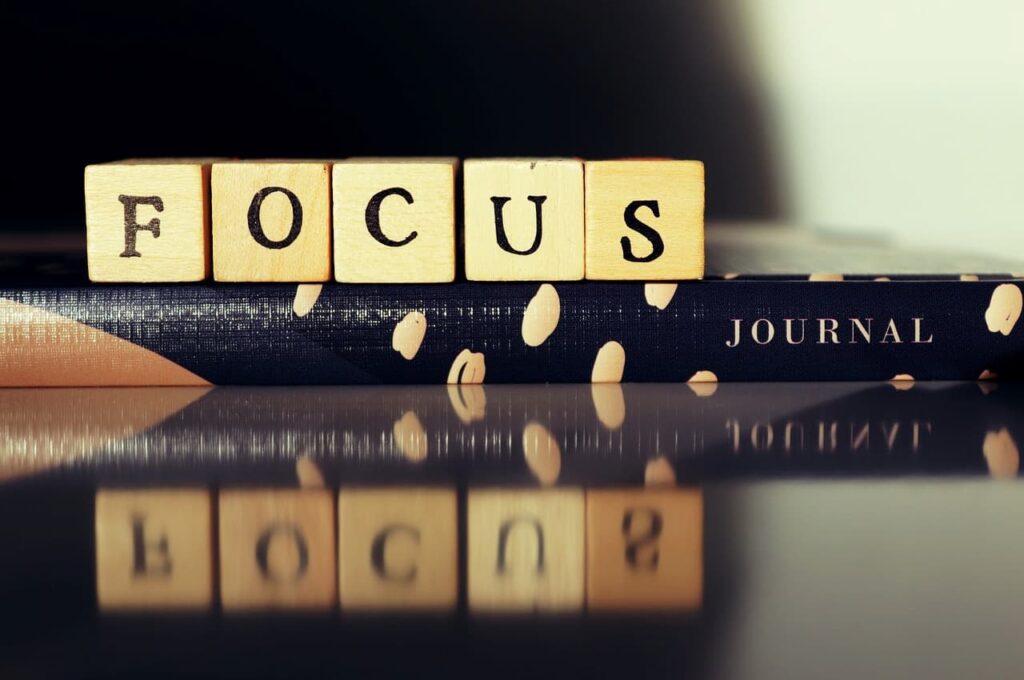Subscribe To Get Latest Updates!


Building Memory Confidence
Memory plays a big part in our everyday lives, whether we’re recalling important facts at work, remembering names, or simply keeping track of our to-do lists. But many people struggle with confidence in their memory, often doubting their ability to remember things when it really counts. This lack of confidence can create anxiety and make us feel less capable, even when our memory is working well.
Building memory confidence is all about improving how we trust our memory. By practicing different techniques and understanding how memory works, we can strengthen our recall abilities and feel more assured. The good news is that anyone can build better memory skills with time and effort, regardless of age or experience.
In this article, we’ll explore practical strategies for boosting memory confidence. From easy memory exercises to adopting new habits that support mental clarity, you’ll discover how to build a stronger memory and gain the confidence to rely on it in all areas of your life.
Table of Contents
1. Introduction
Memory confidence refers to the level of certainty or belief an individual has about the accuracy or reliability of their memory. It reflects how confident a person feels that their recollection of a particular event, fact, or piece of information is correct. Memory confidence doesn’t necessarily correlate with actual accuracy-someone can be highly confident in an incorrect memory or unsure about a memory that turns out to be accurate.
Factors Influencing Memory Confidence
Memory confidence is shaped by several internal and external factors. Understanding these helps explain why someone might feel certain about a memory, even when it may not be entirely accurate.
Vividness and Clarity:
- Vivid Memories: Memories that are rich in detail, sensory impressions, and emotions tend to be associated with high confidence. When a memory feels clear and vivid, we often trust it more.
- Clarity Misleading Accuracy: However, vividness doesn’t always equate to accuracy. Some false memories can feel incredibly vivid, leading to high confidence, even though key details may be wrong or fabricated.
- Example: A person may vividly remember a conversation, but misremember specific details such as who said what. Despite their confidence, the recollection might be wrong.
Emotional Intensity:
- Emotionally Charged Events: Events that are emotionally significant—such as traumatic incidents, moments of extreme joy, or fear—are often remembered with high confidence. Emotions serve as a powerful amplifier of memory confidence.
- Memory Distortion: Intense emotions can also distort memories. For example, during highly stressful situations, details can be misremembered, yet people often feel extremely confident in their memories of the event.
- Example: Eyewitnesses to a crime may recall the event with high confidence due to the emotional intensity of the moment, but their memory of key details (such as what the suspect looked like) may be inaccurate.
Familiarity and Repetition:
- Repetition Strengthens Confidence: Recalling a memory repeatedly or encountering similar information multiple times can increase confidence. This is because repetition reinforces neural pathways, making the memory feel stronger and more reliable.
- False Repetition: However, repeated exposure to incorrect or misleading information can create a false sense of confidence in the memory. This is common in situations where memories are discussed with others or influenced by external information, leading to the formation of false memories.
- Example: Someone might repeatedly hear a version of an event from another person and, over time, become more confident in that version, even if their initial recollection was different.
Social Reinforcement:
- Influence of Others: When others validate or confirm our memories, it can boost our confidence in those memories. Conversely, if someone challenges or doubts our recollection, it can lower our memory confidence.
- Collective Memory Formation: In group settings, memory confidence can be influenced by group consensus. People may feel more confident in a memory after discussing it with others, especially if their version is reinforced by the group.
- Example: In a meeting, after discussing a past event, a group may collectively misremember details, but each individual’s confidence in the memory increases due to the group’s consensus.
Metacognition and Self-Awareness:
- Metacognitive Awareness: This refers to our ability to reflect on our own cognitive processes, including how confident we feel about a memory. Some people are better at assessing their memory confidence based on cues like vagueness or gaps in the memory.
- Under- and Overconfidence: Some individuals tend to be underconfident in their memories, even if they are accurate, while others are prone to overconfidence, especially in ambiguous situations. Metacognitive skills help individuals better gauge the accuracy of their memories and adjust their confidence levels accordingly.
Memory and Confidence in Everyday Life
The connection between memory and confidence plays a significant role in our daily lives, impacting decision-making, relationships, and performance in various settings such as work, education, and legal contexts.
In Decision-Making:
- Relying on Confident Memories: We often make decisions based on memories we are confident about, trusting them as reliable sources of information. For example, recalling past successes or failures influences decisions in business, relationships, or personal goals.
- Overconfidence and Risk: When people overestimate the accuracy of their memories, they may make riskier or poorly informed decisions. Confidence can sometimes overshadow the reality that memory is fallible, leading to choices that aren’t based on reliable information.
In Education and Learning:
- Memory Confidence in Learning: Students often rely on memory confidence to gauge how well they know material before an exam. If they feel highly confident in their recall, they may decide not to study certain topics further. However, overconfidence can lead to gaps in knowledge if their confidence is not matched by accuracy.
- Effective Study Habits: Good learners develop metacognitive awareness, meaning they know when their confidence in a memory might not be reliable and adjust their study habits accordingly by reviewing material or practicing retrieval.
In Legal Settings:
- Eyewitness Testimony: Memory confidence plays a crucial role in the legal system, particularly in eyewitness testimony. Jurors often place more weight on confident testimonies, believing that confident witnesses are more accurate. However, research shows that memory confidence is not always a reliable indicator of memory accuracy, leading to potential miscarriages of justice.
- Cross-Examination Impact: A witness’s memory confidence can be swayed during cross-examination. Skilled lawyers may challenge a witness’s confidence, casting doubt on their testimony, even if the witness’s memory is accurate.
The Mismatch Between Confidence and Accuracy
There are notable cases where memory confidence and accuracy diverge, creating a mismatch that can lead to errors in judgment or decision-making. Two common forms of this mismatch are overconfidence and underconfidence.
Overconfidence in Memory:
- False Memories: People can become very confident in false memories, often because they are reinforced by vivid imagery, emotional significance, or social validation. Overconfidence in false memories is problematic because it can lead to incorrect judgments, mistaken testimony, or flawed decision-making.
- Example: A person might confidently remember meeting someone at a particular place and time, but in reality, they’ve misremembered the event. Despite their high confidence, the memory is inaccurate.
Underconfidence in Memory:
- Accurate but Low-Confidence Memories: Conversely, individuals can have accurate memories but feel uncertain about them. This is especially common with vague or fragmented memories. In these cases, the person might hesitate to rely on the memory, even though it’s correct.
- Example: A student may correctly remember an answer to a question on a test but change their answer due to low confidence, even though their initial response was accurate.
The connection between memory and confidence is multifaceted, influenced by emotional, cognitive, and social factors. While high memory confidence often feels reassuring, it doesn’t always guarantee accuracy. Overconfidence can lead to errors, while underconfidence can cause unnecessary self-doubt. Understanding this connection helps individuals become more mindful of how they rely on their memories in decision-making, learning, and everyday interactions, encouraging the development of strategies to better align memory confidence with actual accuracy.
2. The Connection Between Memory and Confidence

Memory and confidence are intricately linked, influencing how effectively we can recall information and perform in various situations. Our level of confidence in our memory can either enhance or impair our ability to retrieve memories, directly affecting performance, stress levels, and overall cognitive functioning. Understanding this connection is crucial for maximizing memory potential and performance across different areas of life.
How Memory Confidence Affects Performance
Memory Confidence and Anxiety Reduction: Having confidence in our memory abilities often leads to lower levels of anxiety and stress, which in turn improves memory recall. Confidence creates a sense of ease, allowing the mind to focus on retrieval without the distraction of doubt or fear. This is because stress and anxiety are known to disrupt cognitive processes, including memory consolidation and retrieval. When we trust our memory, we are more likely to access information smoothly, leading to better performance in exams, presentations, decision-making, or everyday activities.
Example: During an exam, a student who feels confident in their memory of the material will be able to focus on recalling relevant information without second-guessing themselves, leading to faster and more accurate answers. Conversely, if a student lacks confidence, they may experience heightened anxiety, causing their mind to “freeze,” making it harder to retrieve the correct answers.
Impact of Low Confidence on Performance: On the other hand, a lack of memory confidence often increases stress and impairs memory performance. When we doubt our memory abilities, we are more likely to experience anxiety, which interferes with the brain’s ability to retrieve stored information. This stress-induced memory impairment can create a self-perpetuating cycle, where failure to recall reinforces the initial lack of confidence, further diminishing performance.
Example: In a professional setting, an employee who is underconfident in their memory may struggle during a presentation. Stress from worrying about forgetting key points may disrupt their ability to recall information, leading to hesitations or errors, even when they have accurately prepared.
The Role of Self-Fulfilling Prophecy
Belief in Memory Skills Enhances Performance: A strong connection exists between our beliefs about our memory and our actual performance. When we believe in our memory skills and have confidence in our ability to recall information, it leads to better outcomes. This is partly due to the self-fulfilling prophecy effect, where positive beliefs enhance focus, motivation, and effort, resulting in improved memory performance. Confidence helps people stay calm and engaged, allowing them to maximize their cognitive abilities.
Example: If a student believes they have a good memory for facts and concepts, they are more likely to approach studying with optimism and concentration. This positive attitude translates into better memory retention and recall during tests, reinforcing their confidence in future situations.
Negative Cycle of Self-Doubt: On the flip side, self-doubt can lead to a negative cycle of poor memory performance. When we question our memory abilities, we may become overly cautious, hesitant, or anxious, which can hinder our ability to focus and retrieve information. This creates a self-fulfilling prophecy where our belief in poor memory leads to poor performance, further solidifying our doubts. This negative loop can make individuals more reluctant to trust their memory in the future, even when their recollections are accurate.
Example: If someone believes they are “bad at remembering names,” they are more likely to approach social situations with hesitation and anxiety. This lack of confidence impairs their ability to concentrate on and remember new names, reinforcing their belief that they have poor memory skills, even though it may be due more to their mindset than actual ability.
Building a Growth Mindset for Memory
Memory Can Improve with Practice and Effort: A growth mindset is the belief that abilities, including memory, are not fixed but can be developed through effort, practice, and learning. This mindset encourages individuals to view memory challenges not as limitations but as opportunities for growth. Adopting a growth mindset about memory shifts the focus from doubting one’s abilities to actively working on improving memory skills. It removes the fear of failure and emphasizes that memory, like any other skill, can be enhanced with the right strategies and practice.
Example: Rather than believing “I’m just forgetful,” someone with a growth mindset might say, “I can improve my memory with practice.” This shift in attitude encourages them to use memory-enhancing techniques like spaced repetition, mnemonic devices, or visualization, resulting in better recall over time.
Strategies to Build a Growth Mindset for Memory:
- Focus on Effort Over Results: Encourage yourself to acknowledge the work you’re putting into improving your memory rather than focusing solely on immediate results. Regular practice strengthens memory over time.
- Use Memory Training Techniques: Incorporate memory-building exercises into daily routines, such as practicing recall, using flashcards, or breaking information into smaller chunks.
- Celebrate Progress: Recognize small improvements in memory recall, which helps reinforce the idea that growth is possible.
- Embrace Mistakes: Instead of seeing memory lapses as a sign of failure, view them as opportunities to learn and apply new strategies for recall. Mistakes are part of the learning process in a growth mindset.
Example: A student preparing for a history exam might use spaced repetition to gradually strengthen their memory. With each review session, they build on what they remember, reinforcing their confidence in their ability to improve. Over time, the student will see their memory performance improve, reinforcing the growth mindset.
The connection between memory and confidence is profound, with confidence levels significantly affecting how well we perform in academic, professional, and daily life situations. When we have confidence in our memory, it reduces anxiety, enhances recall, and supports effective decision-making. Conversely, a lack of confidence creates stress, impairs memory performance, and can lead to a negative cycle of self-doubt. However, by adopting a growth mindset, individuals can develop memory skills through practice and effort, overcoming the limitations imposed by self-doubt and turning memory challenges into opportunities for personal development. This growth-oriented approach helps to build both memory confidence and performance over time.
3. Common Causes of Memory-Related Insecurity

Memory-related insecurity arises when individuals doubt their ability to recall information accurately and consistently. This insecurity can stem from various psychological, social, and cognitive factors, leading to self-doubt and reduced confidence in memory performance. Understanding the causes behind memory-related insecurity helps in addressing and overcoming these doubts, enabling individuals to build confidence in their memory abilities. Here are four common causes:
Past Memory Failures
Impact of Negative Past Experiences: One of the most common causes of memory-related insecurity is previous experiences where memory failed during important situations, such as exams, presentations, or meetings. When someone forgets critical information in a high-pressure environment, it can leave a lasting negative impression, leading to self-doubt and insecurity about their memory. These past memory failures can cause individuals to question their overall ability to retain information, even if such lapses are occasional.
Psychological Impact: After a memory failure, individuals may develop a fear of similar situations, anticipating that their memory will fail them again. This creates anxiety, which can further impair memory recall, as stress and anxiety disrupt the brain’s cognitive processes.
Cycle of Self-Doubt: One or two negative experiences can make people feel that they are inherently bad at remembering, even though memory is often context-dependent and can fluctuate based on stress, attention, and other factors.
Example: A student who once blanked out during an important exam might carry that insecurity into future exams, constantly worrying that they will forget crucial information again. This anxiety exacerbates the problem and makes future memory lapses more likely, further solidifying their lack of confidence.
Comparing with Others
Doubt Through Comparison: Memory-related insecurity often arises when individuals compare their memory abilities to those of others. If someone is surrounded by peers, colleagues, or friends who seem to have better recall or retention abilities, it can create a sense of inadequacy. These comparisons lead to self-doubt, even though memory abilities naturally vary between individuals and are influenced by factors like focus, lifestyle, and stress levels.
External Pressure: In environments where quick recall or sharp memory is highly valued—such as competitive workplaces, academic settings, or social circles—people may feel even more insecure if they perceive their memory as weaker compared to others. Constant comparisons can diminish confidence and make people hyper-aware of their own perceived memory flaws.
Unrealistic Standards: People tend to notice others’ strengths and downplay their own successes. Memory-related insecurities can be exaggerated if an individual only sees the instances where others remember things better but forget their own moments of clarity and successful recall.
Example: In a meeting, if one colleague remembers every detail of a previous discussion while another struggles to recall even key points, the person with weaker recall might feel inadequate or insecure about their memory abilities, even if their performance in other areas is strong.
Information Overload
Feeling Overwhelmed by Too Much Information: Another major cause of memory-related insecurity is information overload—when individuals are bombarded with more information than they can realistically process and retain. In today’s fast-paced world, with constant access to news, emails, social media, and work-related data, the brain can become overwhelmed by the sheer volume of information. This cognitive overload makes it harder to remember details, leading to doubts about one’s memory capacity.
Memory Overload: When too much information is absorbed in a short period, the brain struggles to organize and consolidate memories. As a result, individuals may feel insecure about their ability to remember even simple details or important facts because they are mentally juggling too much.
Fragmented Attention: Information overload often goes hand-in-hand with divided attention, as individuals try to multitask and manage various sources of input simultaneously. This scattered focus impairs the encoding of memories, making retrieval more difficult and leading to doubts about one’s memory performance.
Example: An employee trying to manage multiple projects, emails, and meetings in one day may find themselves forgetting key details or missing deadlines. The overwhelming amount of information and tasks leaves them questioning their memory abilities, even though the real issue is overload, not a fundamental memory problem.
Fear of Forgetting
The Fear of Forgetting Important Information: The fear of forgetting crucial information—such as names, dates, tasks, or appointments—can create a mental block that negatively affects memory performance. This anxiety-induced fear often leads to hyper-awareness and worry about memory, which paradoxically makes it harder to remember things. Fear causes stress, which impairs cognitive functioning, particularly memory retrieval.
Self-Imposed Pressure: When individuals place excessive pressure on themselves to remember everything perfectly, they can experience performance anxiety. This pressure, combined with the fear of being judged or missing something important, creates a stressful internal environment that disrupts the normal memory retrieval process.
Mental Blocks: The fear of forgetting creates a cycle of stress and mental blocks, making it harder to access memories. The more someone worries about forgetting, the more likely they are to experience memory lapses due to cognitive overload and anxiety.
Example: Someone attending an important networking event may be so focused on trying to remember the names of all the people they meet that they become anxious and experience mental blocks, ultimately forgetting the names they were trying so hard to retain.
Memory-related insecurity is influenced by a range of factors, including past failures, comparisons with others, information overload, and the fear of forgetting. Each of these causes contributes to self-doubt, making individuals more anxious about their memory abilities. Understanding these common causes is the first step in addressing memory-related insecurities. By recognizing that memory failures are often situational, reframing comparisons with others, managing information intake, and reducing the fear of forgetting, individuals can work to build confidence in their memory and improve performance over time. Adopting a growth mindset, where memory abilities are seen as improvable through effort and practice, is a powerful tool in overcoming these insecurities and fostering better memory performance.
4. Strategies for Improving Memory Skills
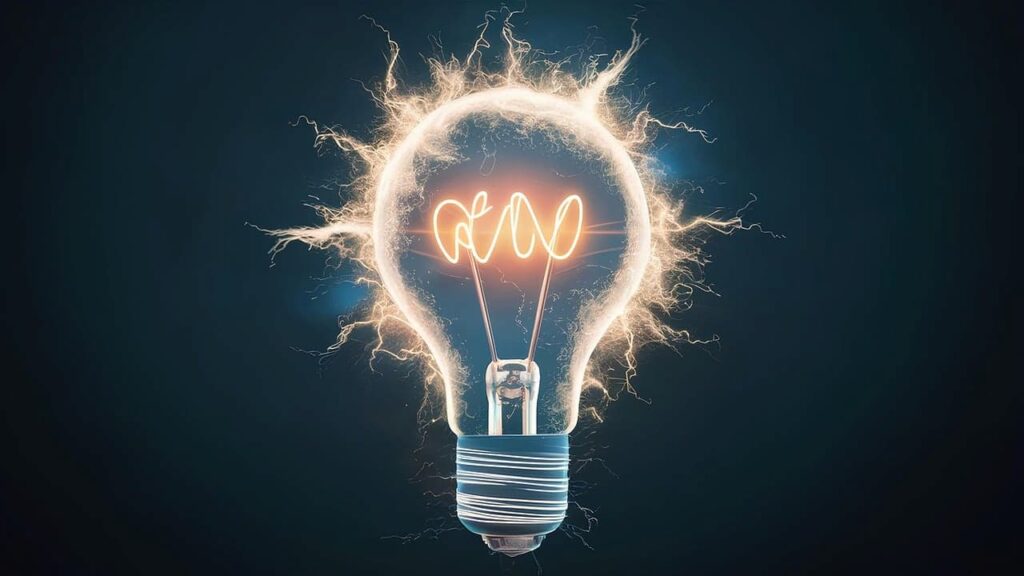
Strategies for Improving Memory Skills are essential for building memory confidence, which refers to how certain individuals feel about their ability to accurately recall information. When people struggle with memory-related insecurities, employing practical techniques can improve both their memory performance and their confidence in their ability to retain and recall information. Developing memory confidence allows individuals to perform better in academics, the workplace, and everyday life, reducing anxiety and improving decision-making.
Here’s a detailed exploration of effective strategies for improving memory skills and building memory confidence:
Active Learning and Engagement
Engage Deeply with the Material: One of the most effective ways to improve memory is to be actively engaged with the material you are trying to remember. Passive reading or listening may not be enough for long-term retention. Instead, engage with the content by asking questions, making connections, and thinking critically about the information. Active engagement enhances memory encoding, leading to better recall and increased confidence in your memory abilities.
Summarization and Paraphrasing: After reading a chapter or learning a concept, try summarizing it in your own words. This process forces your brain to process the information deeply, increasing retention.
Teach Others: Teaching what you’ve learned to someone else is an excellent way to reinforce your understanding. If you can explain a concept clearly, it shows that you’ve successfully encoded the information in your memory.
Example: A student studying for an exam might summarize key concepts after reading a textbook chapter or explain what they’ve learned to a classmate. This active engagement helps improve recall during exams and builds memory confidence.
Spaced Repetition
What Is Spaced Repetition: Spaced repetition is a memory-enhancing technique that involves reviewing information at gradually increasing intervals rather than cramming all at once. This method helps transfer information from short-term memory to long-term memory, leading to better retention over time. By using spaced repetition, individuals can see continuous improvement in their ability to remember, which boosts confidence.
How It Works: Review information shortly after learning it, then revisit it at intervals of days, weeks, and months. This repeated exposure at spaced intervals strengthens memory connections.
Memory Apps: Tools like Anki and Quizlet use spaced repetition algorithms to help users review material effectively.
Example: Someone learning a new language might use flashcards with spaced repetition to memorize vocabulary words. As the intervals between reviews grow longer and their recall improves, they gain confidence in their language memory skills.
Mnemonics and Memory Aids
What Are Mnemonics: Mnemonics are memory aids or shortcuts that help individuals recall information more easily by associating it with familiar images, phrases, or patterns. These techniques make information more memorable by linking it to something meaningful or easier to remember.
Acronyms: Create acronyms to remember lists or sequences. For example, using the acronym “HOMES” to remember the Great Lakes (Huron, Ontario, Michigan, Erie, Superior) is a common mnemonic.
Visualization: Visualize the information in a vivid, memorable way. Associating abstract ideas with visual images can improve recall.
Rhymes and Songs: Turning information into a rhyme or song can make it easier to remember. This is particularly effective for remembering facts, dates, or lists.
Example: A medical student might use the mnemonic “SOAP” (Subjective, Objective, Assessment, Plan) to remember the components of patient documentation. Over time, this technique not only improves recall but also builds confidence in handling clinical cases.
Chunking Information
What Is Chunking: Chunking is the process of breaking down large amounts of information into smaller, more manageable units or “chunks.” Our brain can handle a limited amount of information at once, and chunking allows us to work within these limitations, making it easier to retain and recall complex information.
How It Works: Instead of trying to remember a long list of individual items, group them into related categories or patterns. For example, breaking a phone number into smaller groups (123-456-7890) makes it easier to remember than a long string of numbers.
Group Related Information: Organize information by themes or categories to help structure your memory.
Example: A student preparing for a history exam might group significant events by time periods or key figures. Chunking the information into smaller, related groups makes it easier to remember and boosts confidence during recall.
Mind Mapping and Visualization
What Is Mind Mapping: Mind mapping is a visual tool that helps organize information in a way that mirrors how the brain naturally works—through connections and associations. By creating a mind map, individuals can visually represent relationships between concepts, which helps improve both understanding and memory recall.
Create Visual Links: Use colors, diagrams, and symbols to visually map out key concepts and how they relate to each other. This method helps reinforce memory by engaging both visual and cognitive processes.
Central Themes and Branches: Start with a central idea and branch out to related concepts. This technique mimics the brain’s associative networks, helping you remember information through its connections.
Example: An individual preparing for a business presentation might use a mind map to organize their talking points visually. Seeing the connections between different sections of the presentation strengthens their memory and boosts confidence during delivery.
Practice Retrieval and Self-Testing
Retrieval Practice for Strengthening Memory: Actively recalling information (retrieval practice) is one of the most effective ways to improve memory. Self-testing—whether through flashcards, quizzes, or mock exams—forces the brain to retrieve information, strengthening the neural connections responsible for memory. The more you practice retrieval, the better your memory becomes.
Active Recall: Instead of passively rereading or reviewing notes, test yourself regularly to actively engage the brain in recalling information. This strengthens memory and reinforces confidence.
Simulate Real-World Scenarios: Practice recalling information in settings similar to those where you’ll need it. For example, rehearse presentations or test yourself on exam material in conditions similar to the actual event.
Example: A law student preparing for the bar exam might use flashcards to test themselves on legal principles, practicing recall multiple times. Each successful retrieval builds memory confidence for the actual exam.
Improving memory skills through active learning, spaced repetition, mnemonics, and other practical strategies can significantly enhance memory confidence. These techniques not only improve recall but also reduce the anxiety that often accompanies memory-related tasks. With the right strategies and a growth mindset, individuals can build strong, reliable memory skills, empowering them to perform confidently in any situation.
5. Techniques for Building Memory Confidence

Building memory confidence requires a strategic approach that focuses on gradually improving memory skills while reinforcing positive associations with memory use. By employing techniques like starting with small tasks, practicing recall regularly, celebrating successes, and using visualization techniques, individuals can improve their memory performance and confidence over time. These techniques not only enhance memory abilities but also help overcome the anxiety and self-doubt often associated with memory failures.
Start Small
Begin with Achievable Memory Tasks: One of the most effective ways to build memory confidence is to start with small, manageable tasks. These could include memorizing short lists, simple facts, or a few phone numbers. By starting small, you create opportunities for early success, which helps to reinforce confidence in your memory abilities. Small wins are crucial for overcoming self-doubt because they demonstrate that memory improvement is achievable with effort and focus.
Break Down Complex Information: For instance, if you’re trying to memorize a longer piece of information (e.g., a presentation or speech), break it down into smaller sections and work on memorizing one section at a time. This approach makes the task less daunting and builds momentum as you achieve success with each small task.
Gradual Progress: Over time, as your memory confidence grows, you can progressively tackle more complex tasks, such as memorizing longer lists or more detailed information. The gradual progression from simple to more complex tasks helps ensure that your confidence keeps pace with your improved memory performance.
Example: A student preparing for a history exam might begin by memorizing the dates of five major historical events. After successfully recalling them, they can move on to memorize key facts about each event. These small victories build confidence in their ability to handle larger sets of information.
Practice Recall Regularly
Regular Memory Practice: Memory is a skill that improves with practice, and regular recall exercises can help build familiarity with using memory effectively. Practicing recall not only strengthens memory connections but also builds confidence in the process of retrieving information. The more frequently you practice recalling information, the more comfortable and confident you’ll become with your memory abilities.
Frequent Short Practice Sessions: Consistent, short recall exercises are more effective than occasional, long study sessions. Regularly recalling small lists, phone numbers, facts, or key concepts helps reinforce neural pathways in the brain, making recall easier over time.
Diverse Memory Tasks: Mix up the types of tasks you practice. For example, try recalling lists one day, and facts or phone numbers another. This variety helps keep your brain engaged and prevents boredom, while simultaneously improving your ability to recall different kinds of information.
Example: Someone trying to improve their memory might practice recalling a grocery list before heading to the store. Regularly recalling simple, everyday information like this builds familiarity with memory retrieval, leading to increased confidence in more complex memory tasks.
Positive Reinforcement
Celebrate Small Successes: Positive reinforcement is a powerful tool for building memory confidence. Every time you successfully recall information—whether it’s a fact, name, or list—it’s important to acknowledge and celebrate that success. This helps create positive associations with memory use, which strengthens confidence. Recognizing even small victories reinforces the idea that your memory is reliable, and over time, these positive experiences help eliminate self-doubt.
Acknowledge Progress: After completing a recall task, take a moment to reflect on how well you did. Whether it’s remembering key details for a presentation or recalling a series of items on a list, acknowledging progress keeps you motivated.
Reward System: You can also create a small reward system for yourself after completing memory challenges. Positive reinforcement can be as simple as telling yourself, “Well done,” or treating yourself to something you enjoy after successful recall. This not only motivates you to keep practicing but also boosts your confidence with each success.
Example: A person preparing for a speech might set a goal to memorize a certain number of talking points each day. After successfully recalling those points, they reward themselves with a small break or treat. The consistent reinforcement of success boosts confidence for the day of the actual speech.
Visualization of Success
Mentally Rehearse Successful Memory Recall: Visualization is a powerful mental technique used by athletes, performers, and professionals to enhance performance, and it works just as effectively for memory. By mentally rehearsing successful memory recall, you can build confidence and reduce anxiety about forgetting important information. Visualization helps you see yourself succeeding, which creates positive mental associations with memory use, making the process less stressful.
Visualize the Recall Process: Imagine yourself in a situation where you need to recall information—whether it’s an exam, presentation, or social event. Visualize yourself confidently retrieving the information with ease. This mental rehearsal prepares your mind for actual recall situations, reducing the likelihood of anxiety-induced memory blocks.
Incorporate Positive Emotions: While visualizing, focus on the emotions associated with successful recall—such as calmness, confidence, and pride. These emotions will help condition your mind to remain calm and confident in real-life recall situations.
Example: Before a job interview, an individual might visualize themselves confidently recalling their previous work experiences and accomplishments during the interview. This mental rehearsal builds confidence, reduces anxiety, and helps them perform better when recalling information during the actual interview.
Building memory confidence requires a combination of practical memory improvement strategies and psychological techniques that reduce self-doubt and enhance recall abilities. By starting small with manageable tasks, individuals can achieve early successes that reinforce confidence. Practicing recall regularly strengthens memory pathways and builds familiarity with retrieval, while positive reinforcement encourages continued improvement by celebrating small wins. Lastly, visualization of success prepares the mind for future recall tasks by reducing anxiety and reinforcing positive mental associations. Together, these techniques create a solid foundation for both improving memory skills and building the confidence needed to use those skills effectively.
6. Overcoming Memory-Related Anxiety
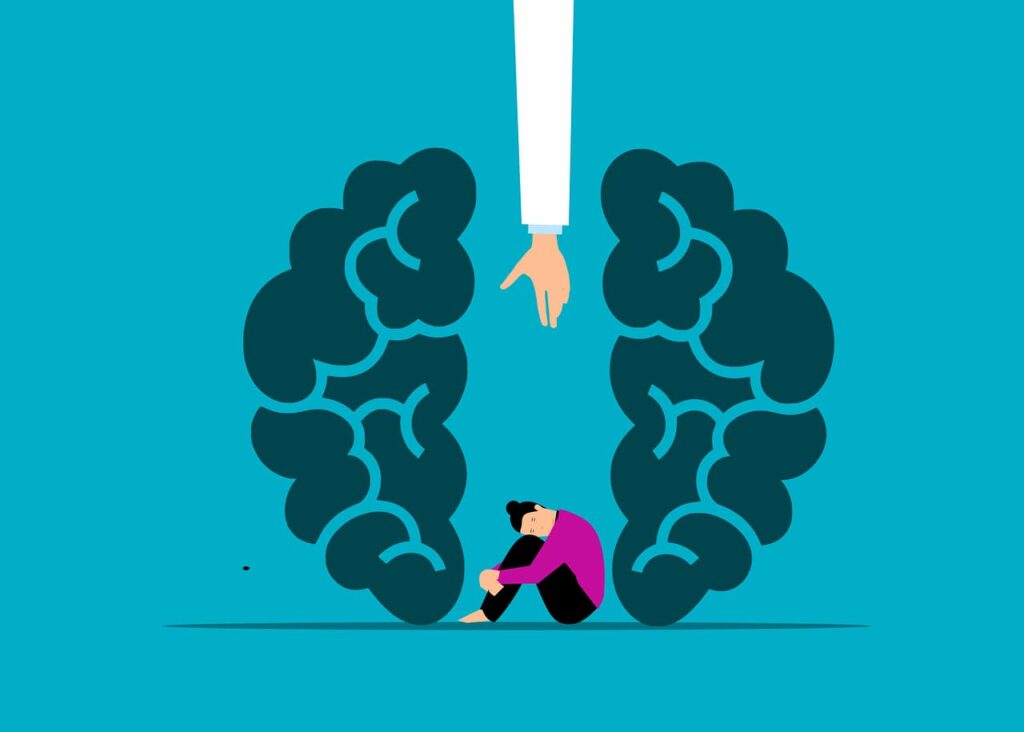
Memory-related anxiety is a common issue that can significantly impair memory performance. When we become anxious about our ability to remember important information, the resulting stress disrupts cognitive processes, making it harder to recall even simple details. Fortunately, there are several strategies to overcome this anxiety and improve both memory skills and confidence. These strategies include mindfulness techniques, reframing memory failures, and breaking the fear of forgetting through practical tools and approaches.
Mindfulness and Stress Management
Using Mindfulness to Reduce Stress: Stress and anxiety are major disruptors of memory function. When the brain is overwhelmed by stress, it becomes difficult to focus, process, and retrieve information. Practicing mindfulness techniques can help calm the mind, reduce stress, and create a mental environment that supports better memory performance. Mindfulness encourages being present in the moment, which reduces cognitive overload and allows the brain to process and store information more effectively.
Meditation: Regular meditation practice helps lower stress levels and improves focus. By dedicating just a few minutes each day to meditation, individuals can train their minds to remain calm and centered, reducing the anxiety that often blocks memory retrieval.
Deep Breathing Exercises: Deep, slow breathing activates the body’s relaxation response, lowering heart rate and calming the nervous system. Incorporating deep breathing exercises before tasks that require memory (such as tests, presentations, or interviews) can help clear mental clutter and reduce the pressure associated with remembering important details.
Body Scan and Mindful Awareness: The body scan technique involves slowly paying attention to different parts of your body, releasing tension, and focusing on your breath. This mindful awareness helps quiet the mind and improve focus, setting the stage for better memory function.
Example: Before giving an important presentation, an individual might practice a few minutes of deep breathing or a short mindfulness meditation. This reduces their anxiety about recalling talking points, helping them feel calmer and improving their memory performance during the presentation.
Reframing Memory Failures
Viewing Memory Lapses as Learning Opportunities: Memory lapses often lead to frustration and anxiety, especially in high-pressure situations. However, reframing memory failures as opportunities for growth rather than signs of personal inadequacy can greatly reduce anxiety and build resilience. This approach is based on adopting a growth mindset, which emphasizes that memory skills can improve with practice and effort.
Normalizing Forgetfulness: Everyone experiences memory lapses from time to time, and they are often situational (due to distractions, stress, or fatigue). Recognizing that forgetting is a normal part of life helps remove the stigma associated with memory lapses and reduces the fear of failure.
Learning from Mistakes: Instead of viewing memory failures as personal flaws, individuals can see them as learning opportunities. By reflecting on the conditions that led to the lapse (e.g., stress, multitasking, lack of focus), individuals can identify strategies to avoid similar issues in the future, whether by improving focus, reducing stress, or using memory techniques.
Focusing on Improvement: Shifting from a fixed mindset (“I’m bad at remembering things”) to a growth mindset (“I can improve my memory with practice”) encourages resilience and effort. This approach helps individuals focus on gradual improvement and reduces anxiety surrounding future memory challenges.
Example: After forgetting a key point during a meeting, an employee might initially feel frustrated. However, by reframing the lapse as an opportunity to learn, they recognize that pre-meeting stress affected their focus. For the next meeting, they might employ mindfulness techniques to remain calm, practice the key points beforehand, and gradually improve their memory skills.
Breaking the Fear of Forgetting
Strategies to Reduce the Fear of Forgetting: The fear of forgetting important information can create a mental block, making it even harder to recall details under pressure. This fear is often rooted in the expectation of perfection, which places unnecessary stress on the mind. Overcoming this fear involves practical strategies, such as using memory aids and practicing recall in low-pressure environments, to gradually build memory confidence.
Using Memory Aids as Safety Nets: One of the simplest ways to reduce the fear of forgetting is by using memory aids, such as lists, reminders, or note-taking apps. These tools serve as “safety nets,” giving individuals the peace of mind that they have backup support if they forget something important. Knowing that these aids are available can reduce the pressure to remember everything perfectly, which in turn lowers anxiety.
Practicing Recall Regularly: While memory aids are useful, it’s important to continue practicing recall without relying too heavily on these tools. Regular practice helps strengthen memory pathways and builds confidence in the ability to recall information without external support. Over time, individuals can practice recalling information more frequently and in more complex contexts, reducing their reliance on aids and reinforcing their memory confidence.
Setting Realistic Expectations: Reducing the fear of forgetting also involves setting realistic expectations for memory performance. Recognizing that it’s impossible to remember every detail perfectly and accepting occasional lapses as normal helps ease the pressure. By focusing on improvement rather than perfection, individuals can reduce the anxiety associated with memory recall.
Example: A busy professional might feel anxious about forgetting important meetings or tasks throughout the day. To reduce this fear, they set reminders on their phone and use a to-do list for key tasks. At the same time, they practice recalling important information (such as names, dates, and deadlines) without immediately checking their notes. Over time, their ability to recall information improves, and they become less reliant on external memory aids.
Memory-related anxiety can significantly impair performance by creating mental blocks and increasing stress. However, through mindfulness and stress management, reframing memory failures, and breaking the fear of forgetting, individuals can build both memory confidence and overall mental resilience. Mindfulness practices like meditation and deep breathing help calm the mind and improve focus, while viewing memory lapses as learning opportunities encourages a growth mindset toward memory improvement. Finally, using memory aids as safety nets, along with regular recall practice, helps individuals gradually reduce their fear of forgetting and improve memory performance over time. These strategies not only enhance memory skills but also reduce the anxiety that often accompanies memory challenges, leading to greater confidence and success.
7. Building Memory Confidence in Different Areas of Life
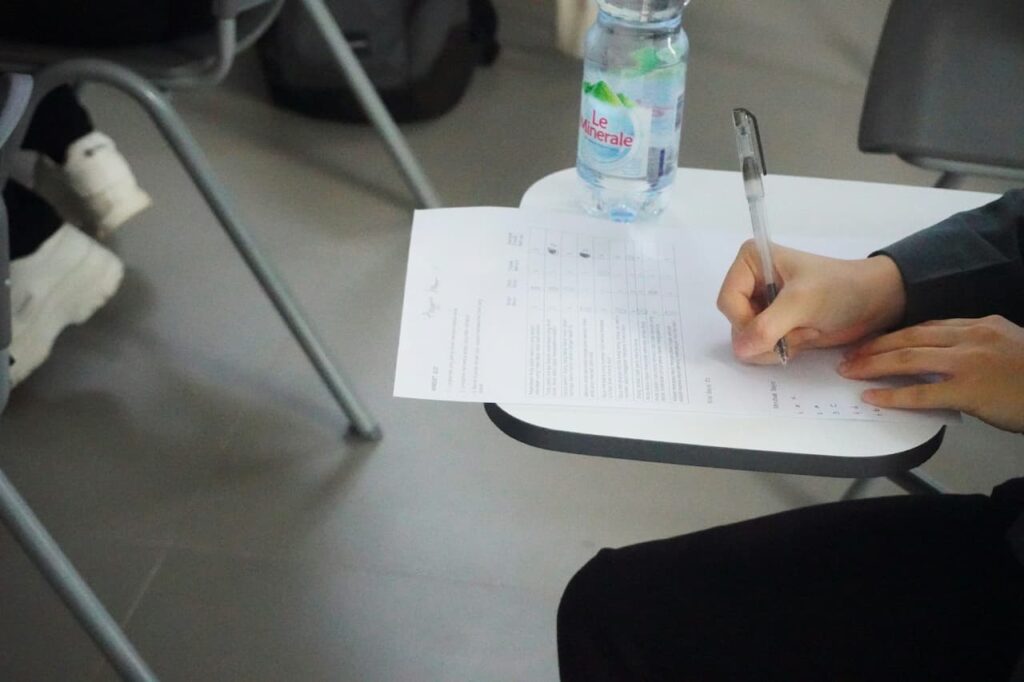
Memory confidence is crucial for success in various aspects of life, including academics, professional settings, and social situations. By applying targeted memory techniques to different areas, individuals can improve their recall abilities, reduce anxiety, and increase overall confidence in their memory performance. Here’s how memory confidence can be built in academic, workplace, and social contexts.
Academic and Test Preparation
For students, memory confidence plays a critical role in exam preparation and academic success. Effective recall of information during exams is often the result of well-structured study methods and memory-enhancing techniques. Building memory confidence for academic purposes involves using methods such as active recall, mind mapping, and spaced repetition, which not only improve memory retention but also reinforce confidence in one’s ability to retrieve information when needed.
Active Recall:
- What It Is: Active recall involves testing yourself on the material you’re trying to learn, rather than passively reviewing notes or textbooks. By forcing the brain to actively retrieve information, you strengthen the neural connections that make it easier to recall that information during an exam.
- How It Builds Confidence: Regularly practicing active recall helps you become more familiar with the process of memory retrieval, reducing anxiety and increasing confidence when you face exam questions.
- How to Use It: Create flashcards or practice questions that test your understanding of key concepts. Try to recall the answers without looking at your notes, and review any areas where you struggle.
Mind Mapping:
- What It Is: Mind mapping is a visual tool that helps organize and structure information by creating connections between different concepts. It involves drawing out main topics and linking them with subtopics, helping you see the relationships between different pieces of information.
- How It Builds Confidence: Mind mapping enables you to better understand the material in a holistic way, giving you confidence that you have not only memorized information but also grasped how concepts fit together.
- How to Use It: For example, if you’re studying biology, create a mind map that starts with the main topic (e.g., cell structure) and branches out into subtopics (e.g., organelles, cell functions). This visual approach improves both understanding and recall during exams.
Spaced Repetition:
- What It Is: Spaced repetition is a technique where information is reviewed at increasing intervals over time. This method helps move information from short-term memory into long-term memory, ensuring that you remember it for exams.
- How It Builds Confidence: By using spaced repetition, you regularly reinforce your knowledge, which makes you feel more secure in your ability to remember it. As you see improvement in recall over time, your confidence naturally increases.
- How to Use It: Use a tool like Anki or Quizlet to organize your study materials and set reminders to review content after progressively longer intervals (e.g., 1 day, 3 days, 1 week, 2 weeks). This steady reinforcement ensures that information stays fresh in your mind.
Example: A student preparing for a history exam might use spaced repetition to review key dates, mind mapping to organize themes of historical events, and active recall to test themselves on key facts and concepts. By using these techniques consistently, they build memory confidence and reduce exam anxiety.
Workplace and Professional Settings
In professional environments, having strong memory confidence is crucial for handling tasks such as presentations, remembering key client information, or recalling data during meetings. By employing effective memory strategies, professionals can improve performance, boost their confidence, and reduce reliance on notes or external aids. Techniques like memorizing key data, structured rehearsals for presentations, and client or colleague memory aids help professionals enhance their memory confidence in the workplace.
Memorizing Key Data
- What It Is: For professionals who need to remember critical data, whether it’s financial figures, sales metrics, or product details, focusing on key information and using techniques like chunking (grouping information into meaningful units) can improve recall.
- How It Builds Confidence: Mastering essential data without constantly referring to notes improves your credibility and confidence, particularly in high-pressure situations like client meetings or board presentations.
- How to Use It: Break large sets of data into smaller, more manageable chunks. For example, instead of memorizing 10 separate figures, group them by category (e.g., quarterly sales for different regions) and memorize them in those meaningful units.
Structured Presentation Rehearsals:
- What It Is: Memorizing key points of a presentation through structured rehearsal involves practicing your presentation multiple times, either alone or in front of a colleague, to reinforce both the flow of information and your ability to recall key details under pressure.
- How It Builds Confidence: The more you rehearse, the more familiar you become with the material, reducing the need for notes and increasing your confidence when presenting to an audience.
- How to Use It: Break the presentation into sections and rehearse each part separately. Use visualization techniques to imagine the actual presentation setting, which further strengthens recall and builds memory confidence.
Memory Aids for Client or Colleague Information:
- What It Is: Using mnemonic devices or association techniques to remember client names, preferences, or key details about their business can help you maintain strong professional relationships without needing constant reminders.
- How It Builds Confidence: By being able to recall important client information from memory, you project professionalism and attention to detail, which builds your reputation and confidence in interactions.
- How to Use It: Use association techniques to link a client’s name or key details with a vivid mental image. For instance, if your client’s name is “Taylor,” you might picture them standing with a tailor’s measuring tape, which helps cement their name in your memory.
Example: A marketing manager preparing for a big presentation might rehearse their slides multiple times, focusing on key data points without referring to notes. By practicing recall and using memory aids to remember key client preferences, they approach the presentation with more confidence and deliver it smoothly.
Social Situations
In social settings, memory confidence is crucial for remembering names, faces, and personal details, which are key to building and maintaining strong relationships. Techniques such as name repetition, association, and visualization can help improve memory recall in social situations, leading to more comfortable and confident interactions.
Name Repetition:
- What It Is: Repeating someone’s name soon after meeting them helps reinforce the memory of that name in your mind. This technique strengthens the connection between the person’s face and their name, making it easier to recall later.
- How It Builds Confidence: Confidently remembering and using someone’s name in conversation creates a positive impression and helps you feel more in control during social interactions.
- How to Use It: When you are introduced to someone new, repeat their name immediately in conversation (e.g., “Nice to meet you, Sarah”) and try to use their name again within the next few minutes to reinforce the association.
Association Techniques:
- What It Is: Associating a person’s name with a visual image, rhyme, or a memorable characteristic (such as their job or hobby) helps improve recall. Creating these associations makes the information more memorable by linking it to something distinctive.
- How It Builds Confidence: When you use association techniques, you reduce the anxiety of forgetting names or personal details, which helps you engage more confidently in social situations.
- How to Use It: For example, if you meet someone named “Matt” who works as a carpenter, you could associate him with a mat on the floor or visualize him using tools. The stronger the mental image or connection, the easier it is to recall their name later.
Visualization:
- What It Is: Visualization involves mentally picturing the person’s face and name together, helping to create a lasting connection between the two. This technique engages the brain’s visual memory, which is often stronger than verbal memory alone.
- How It Builds Confidence: By mentally rehearsing interactions and visualizing faces and names, you build confidence that you will remember important details during social events, reducing anxiety.
- How to Use It: After meeting someone, close your eyes for a moment and visualize their face while repeating their name to yourself. This mental rehearsal helps solidify the memory in your mind.
Example: At a networking event, an individual might meet several new people. By using name repetition, associating faces with memorable characteristics (e.g., “Sally the graphic designer”), and visualizing the names after each introduction, they improve their ability to recall names confidently throughout the event.
Building memory confidence requires applying tailored techniques to the specific contexts in which memory is needed. In academic settings, students can use active recall, mind mapping, and spaced repetition to boost their ability to remember information for exams. In professional settings, techniques such as memorizing key data, rehearsing presentations, and using memory aids for client information help improve recall in the workplace. Finally, in social situations, name repetition, association, and visualization can build confidence in remembering names, faces, and personal details, making interactions smoother and more enjoyable. By practicing these techniques consistently, individuals can build strong memory skills and approach various aspects of life with greater confidence and ease.
8. Setting Realistic Expectations for Memory
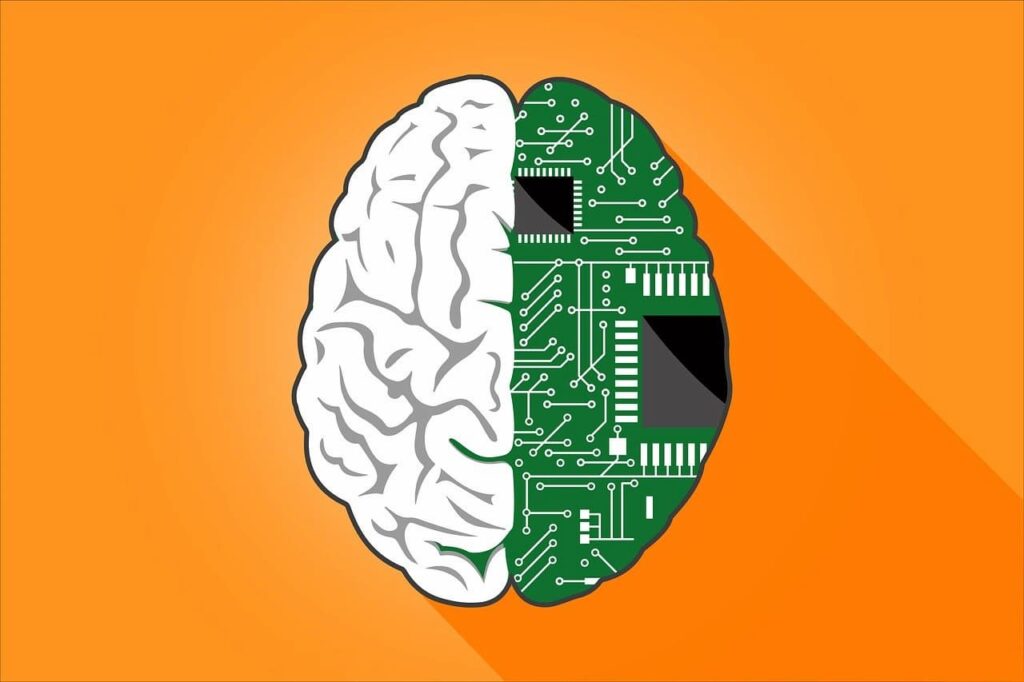
Setting realistic expectations for memory is essential for reducing anxiety, boosting memory confidence, and improving overall performance in daily life. Understanding that memory has natural limits and embracing the idea that improvement is a gradual process helps alleviate the pressure of trying to achieve perfection. It also emphasizes the value of using external aids, such as calendars or apps, as part of effective memory management, without diminishing one’s memory abilities.
Understanding the Limits of Memory
Accepting the Imperfection of Memory: No one has a perfect memory. Human memory is fallible and subject to a range of influences, including stress, fatigue, distraction, and age. Recognizing that occasional forgetfulness is normal can help individuals set more realistic expectations for their memory performance. By understanding that memory lapses happen to everyone, we can avoid the unnecessary pressure of expecting flawless recall, which can lead to anxiety and self-doubt.
Memory as a Constructive Process: Memory is not like a camera that records events exactly as they happen. Instead, it is a reconstructive process, where the brain pieces together fragments of information to recreate an experience or fact. This means that errors or gaps in memory are natural, and they occur because our brains prioritize efficiency over perfect accuracy.
Context-Dependent Memory: Memory is often situational and influenced by context. Factors like emotional state, attention, and environment can affect how well we remember information. Forgetting names at a busy networking event or misplacing keys when you’re rushed is common, and setting realistic expectations means accepting that such instances are part of life.
How It Alleviates Pressure: Accepting that everyone experiences memory lapses helps reduce the internal pressure to perform perfectly. It also reduces the shame or frustration that comes with occasional forgetfulness. Instead of viewing every lapse as a personal failing, understanding the limitations of memory fosters a more forgiving and realistic approach to memory challenges.
Example: A professional who forgets a colleague’s name at a large meeting might feel embarrassed. However, by recognizing that memory is naturally imperfect, they can alleviate self-criticism and simply ask for the name again, without feeling inadequate or stressed about the lapse.
Focusing on Improvement, Not Perfection
Building Memory Confidence is a Gradual Process: Developing strong memory skills and building confidence in your ability to recall information takes time, practice, and consistency. Setting realistic expectations means recognizing that the goal is not to achieve perfect memory overnight but to focus on gradual improvement. Every step forward, no matter how small, contributes to better long-term memory performance.
Progress Over Perfection: Focusing on incremental progress rather than perfection is key to maintaining motivation. When individuals expect perfection, every small lapse can feel like a setback. However, when the focus is on steady improvement, those same lapses become opportunities for growth. The goal is to strengthen memory skills over time, not to eliminate every mistake.
Growth Mindset Approach: Viewing memory as a skill that can be developed rather than a fixed trait encourages persistence and resilience. A growth mindset fosters the belief that abilities, including memory, can be improved through effort, practice, and learning from mistakes.
How It Reduces Anxiety: Focusing on improvement rather than perfection helps reduce the fear of failure. When individuals set realistic expectations and acknowledge that memory is a skill to be developed, they become less anxious about occasional lapses. This mindset shift makes memory improvement less stressful and more rewarding, as each small success builds confidence.
Example: A student preparing for exams might struggle to remember every detail perfectly. Instead of feeling discouraged by forgetfulness, they can focus on gradually improving their recall of key concepts over several study sessions. Over time, their confidence grows as they notice small improvements in memory retention.
Balancing Memory with External Aids
Using Memory Aids as Part of Effective Memory Management: While strengthening memory skills is important, it’s equally important to recognize that relying on external memory aids—such as calendars, reminder apps, to-do lists, or notes—is a smart and efficient strategy, not a sign of weak memory. These tools complement and enhance memory by offloading certain tasks, allowing individuals to focus their mental energy on more critical or complex information.
External Aids as Support, Not Crutches: Memory aids don’t reflect poorly on one’s memory abilities. In fact, they enhance productivity and mental clarity by helping manage routine or repetitive information. This allows the brain to prioritize more important tasks or focus on solving problems.
A Cognitive Safety Net: Memory aids provide a “safety net” that reduces anxiety about forgetting important tasks or deadlines. Knowing that you have a backup system in place helps you stay organized and reduces the cognitive load, which can actually improve memory for more complex tasks.
How It Builds Memory Confidence: Using external aids responsibly fosters memory confidence because it reduces the fear of forgetting crucial information. By acknowledging that it’s both normal and efficient to use reminders for routine or easily overlooked details, individuals free up mental space for higher-level cognitive tasks. This leads to improved performance and increased confidence in their ability to handle complex or important memory tasks.
Example: A busy executive uses a calendar app to track appointments and deadlines. Rather than worrying about remembering every meeting, they use reminders for routine scheduling and focus their memory on preparing for key presentations and decision-making. By balancing external aids with personal memory skills, they maintain confidence in their ability to perform well in critical situations.
Setting realistic expectations for memory involves understanding that memory is inherently imperfect, focusing on gradual improvement rather than perfection, and using external aids as part of an effective memory management strategy. Accepting the limits of memory helps reduce unnecessary pressure, making forgetfulness feel normal rather than a personal failing. Focusing on improvement encourages a growth mindset, where individuals recognize that memory skills can develop over time through practice. Finally, balancing memory with external aids ensures that people are not overwhelmed by the need to remember every detail, allowing them to focus on critical tasks and reduce the anxiety associated with forgetting. These strategies lead to improved memory performance and greater confidence in one’s memory abilities across different areas of life.
9. Practicing Memory in a Low-Pressure Environment

Building memory confidence is a gradual process that benefits greatly from practice in a low-pressure environment, where the fear of failure is minimized, and the focus is on improvement rather than perfection. Practicing in such settings allows individuals to improve their recall abilities without the stress that typically accompanies high-stakes situations like exams, presentations, or social events. Techniques such as memory games, self-quizzing, and memory challenges provide engaging, stress-free opportunities to strengthen memory skills, which gradually builds both competence and confidence.
Memory Games and Puzzles
Improving Memory Through Fun and Engagement: Memory games and puzzles are effective tools for enhancing memory because they provide an enjoyable, low-stakes way to practice recall and cognitive skills. Engaging with memory games helps individuals improve their ability to focus, retain, and retrieve information in a fun, pressure-free setting. These activities challenge the brain, keeping it active and improving memory performance without the stress associated with more formal memory tasks.
Games That Target Memory Skills: Popular games such as matching card games, word puzzles, and trivia quizzes are designed to improve working memory (the ability to hold and manipulate information over short periods). Brain-training apps like Lumosity, Peak, or Elevate also offer memory-focused games that target specific areas like visual memory, verbal recall, and pattern recognition.
Stress-Free Practice: The low-pressure nature of games means that individuals can play without fear of failure. Each game is an opportunity to strengthen memory skills, but since the stakes are low, individuals don’t feel the same anxiety or pressure as they might in real-life scenarios. This helps build memory confidence over time.
How It Builds Confidence: By playing memory games regularly, individuals develop the ability to recall information faster and more accurately in a playful, relaxed environment. As they see their performance improve over time, they become more confident in their memory skills, translating this confidence to more high-pressure situations in their academic, professional, or social lives.
Example: Someone looking to improve their memory might start by playing a classic memory game, like “Concentration” (where players match pairs of cards from memory). As they get better at remembering card locations, they gain confidence in their short-term recall abilities. Similarly, using a brain-training app to complete daily memory challenges can foster a sense of progress and achievement.
Self-Quizzing
Testing Memory in a Stress-Free Setting: Self-quizzing is a powerful technique for strengthening memory by actively retrieving information from memory without external cues. In a low-pressure setting, self-quizzing allows individuals to test their memory without the fear of judgment or failure that might accompany formal exams or assessments. It provides immediate feedback on what’s been learned and what needs further review, reinforcing recall abilities over time.
Creating Flashcards or Question Lists: Self-quizzing can be as simple as creating flashcards or making a list of questions related to a topic you’re trying to learn. You can quiz yourself on anything—new vocabulary, historical facts, formulas, or even phone numbers. This active recall practice forces your brain to retrieve information, which strengthens memory.
Building Familiarity with Memory Retrieval: Regular self-quizzing helps individuals become more familiar with the process of recalling information. This familiarity reduces anxiety in real-world situations, where quick recall is often needed, such as during exams, presentations, or client meetings.
How It Builds Confidence: When you regularly quiz yourself and see improvement over time, it reinforces the idea that your memory is improving with practice. The ability to retrieve information on demand in a stress-free setting builds confidence, making it easier to perform in more stressful, high-stakes situations.
Example: A student preparing for a history test might create a series of flashcards with key dates, events, and figures. By quizzing themselves each day, they improve their ability to recall these details effortlessly. As their recall improves in this low-stakes environment, they develop the confidence needed to perform well on the actual test.
Memory Challenges
Setting Small, Gradual Memory Challenges: Setting small, achievable memory challenges is an excellent way to practice memory skills in a low-pressure environment while gradually building confidence. These challenges might include memorizing a short list of grocery items, recalling details from a recent book or conversation, or practicing the recall of random numbers or phone numbers. By starting with manageable tasks, individuals can experience success early on, reinforcing their confidence and encouraging them to tackle more complex memory tasks as they progress.
Types of Memory Challenges: Memorizing Lists: Start with a simple list of items (e.g., groceries, a to-do list, or tasks for the day). Gradually increase the length and complexity of the list to push your memory skills further.
Recalling Details from Books or Movies: After reading a book or watching a movie, challenge yourself to recall specific details—such as character names, plot points, or key quotes. This helps improve long-term memory and comprehension.
Memorizing Numbers: Practice recalling short sequences of numbers, like phone numbers or dates, and gradually work up to longer sequences. This strengthens working memory and boosts confidence in everyday tasks.
How It Builds Confidence: Each time you successfully complete a memory challenge, you reinforce your belief in your memory abilities. Starting with small tasks and gradually increasing the difficulty allows you to experience success consistently, which builds a positive association with memory use. This gradual process not only strengthens memory but also increases confidence in handling larger and more complex memory tasks in the future.
Example: An individual might challenge themselves to remember their grocery list without checking it once they arrive at the store. If they successfully recall all the items, they gain a sense of accomplishment. Over time, they can increase the difficulty by adding more items to the list, or by trying to recall details from conversations or recent news articles. This steady progress boosts both memory skills and confidence.
Practicing memory in a low-pressure environment is an effective way to improve recall abilities while building confidence. By engaging in memory games and puzzles, individuals can have fun while strengthening memory skills without the stress of real-world situations. Self-quizzing allows for stress-free testing of memory, providing immediate feedback and reinforcing recall, while memory challenges offer incremental improvements that build both memory strength and confidence over time. These techniques help reduce anxiety around memory use, turning memory practice into a positive and empowering experience. As a result, individuals are better prepared to perform confidently in high-stakes situations, such as exams, professional tasks, or social interactions.
10. Tracking Progress to Build Confidence
Tracking progress is a key strategy in building memory confidence. It involves measuring memory improvements, setting achievable goals, and reflecting on progress over time. By keeping a record of both successes and areas that need improvement, individuals can see tangible evidence of growth, which boosts confidence. The process of tracking memory progress helps create a positive feedback loop, where small victories lead to greater motivation and continued progress. Here’s how techniques like memory journals, incremental goal setting, and measuring long-term gains can help reinforce memory confidence.
Memory Journals
Keeping a Memory Journal to Track Progress: A memory journal is a simple yet effective tool for tracking your memory improvement journey. In a memory journal, individuals can log daily or weekly experiences with memory tasks, document successes, and identify areas for improvement. Writing down what works, what doesn’t, and any patterns noticed in recall abilities allows for reflection and self-awareness. The act of keeping a memory journal serves both as a record of accomplishments and a tool for continuous self-improvement.
- Documenting Successes: Each time you successfully recall information, whether it’s a name, fact, or detail from a meeting, note it down in your memory journal. Celebrate these small successes, as they provide evidence of progress. Seeing these achievements in writing helps reinforce the idea that your memory skills are improving.
- Identifying Areas for Growth: A memory journal also helps track areas where recall was difficult. By identifying patterns, such as specific types of information that are harder to remember (e.g., numbers, names, or abstract concepts), you can adjust your memory strategies or focus more practice on these areas.
- Reflecting on Progress: Periodically reviewing your memory journal allows you to reflect on how far you’ve come. When you look back at earlier entries, you can see improvements that may not have been obvious in the day-to-day. This reflection builds confidence by highlighting how much progress has been made over time.
How It Boosts Confidence: Keeping a memory journal helps shift the focus from isolated moments of forgetfulness to an overall picture of growth and improvement. By reflecting on both successes and challenges, you develop a clearer understanding of your memory abilities, which builds confidence in your potential to continue improving.
Example: A student studying a new language might use a memory journal to track their ability to recall vocabulary words. Each time they successfully remember new words in conversation, they write it down. Over a few weeks, they can see their vocabulary growing and notice areas where they need to practice more, which boosts confidence in their language-learning abilities.
Set Incremental Goals
Setting Specific, Achievable Goals for Memory Improvement: Setting incremental goals is another powerful way to build memory confidence. These are small, manageable objectives that focus on specific memory tasks, such as learning new words, remembering names, or improving recall of important facts. By achieving these small goals, individuals experience a sense of accomplishment that strengthens their belief in their memory abilities. Setting goals also creates structure in the memory-building process, which provides a clear path for progress.
- Start with Small, Achievable Goals: For example, set a goal to remember 10 new vocabulary words per week, memorize a list of grocery items without checking it, or recall details from a recent book or article. These tasks are simple and achievable, which allows you to experience early success.
- Gradually Increase the Difficulty: As you meet your goals, you can increase the complexity or quantity of information. For instance, after successfully memorizing 10 new words each week, you might raise the goal to 15 or 20 words. This gradual progression keeps your memory challenged and ensures ongoing improvement.
- Track and Measure Success: Keep track of your goals in your memory journal or a progress chart. Checking off goals as you meet them creates a tangible record of your achievements, providing motivation and reinforcing confidence.
How It Builds Confidence: Achieving incremental goals boosts confidence by providing consistent, measurable success. Each time you reach a goal, it reinforces the belief that you can improve your memory skills with effort and practice. This step-by-step approach helps you see ongoing progress, which keeps you motivated to continue working on more challenging memory tasks.
Example: An employee preparing for a work presentation might set a goal to memorize three key points each day leading up to the presentation. As they successfully meet these daily goals, they gain confidence in their ability to recall the information without relying on notes during the actual presentation.
Measuring Long-Term Gains
Measuring Memory Improvements Over Time: One of the most effective ways to build long-term memory confidence is by tracking and measuring improvements over extended periods. This could involve tracking how well you recall information (e.g., facts, figures, names) or how much you reduce reliance on memory aids such as notes, reminders, or lists. Over time, measuring your ability to retain and recall information provides clear evidence of growth, which reinforces confidence in your memory skills.
- Tracking Recall of Facts and Information: Over time, track how often you are able to recall important facts or details accurately. For example, you might measure how well you can recall client information in a professional setting or remember important dates and events in your personal life. By consistently testing and tracking your recall abilities, you can see improvement and build confidence.
- Reducing Reliance on Memory Aids: If you often rely on external memory aids (e.g., to-do lists, calendar reminders), track how much you reduce this reliance over time. The goal is not to eliminate aids entirely but to increase your ability to remember without needing constant external support. Noticing that you rely less on aids as you improve your recall ability builds a sense of independence and confidence in your memory.
- Use Benchmarks: Establish benchmarks for your memory improvement journey. For example, start by assessing how much you rely on memory aids, and then measure improvements over a month, three months, or a year. This long-term tracking provides clear milestones that demonstrate how much progress you’ve made.
How It Builds Confidence: Measuring long-term gains provides concrete proof that your memory skills are improving over time. By focusing on long-term progress, you see how consistent practice and incremental goals lead to significant memory improvements. This awareness helps reinforce the idea that memory skills can be developed and strengthened, which boosts overall confidence.
Example: A law student might track their ability to remember key legal concepts and case law over the course of a semester. By reviewing how much information they can recall by the end of the term compared to the beginning, they can measure their improvement and feel more confident in their ability to recall details during exams or in future legal practice.
Tracking progress is an essential element in building memory confidence. By keeping a memory journal, individuals can reflect on their successes and areas for growth, reinforcing the idea that memory improvement is a journey rather than a destination. Setting incremental goals provides structured, achievable tasks that build confidence through consistent success, while measuring long-term gains helps individuals recognize significant improvements in their memory skills over time. Each of these practices reinforces the idea that memory abilities can be improved with practice, reducing anxiety and boosting confidence across academic, professional, and personal settings.
11. Using Social Support to Build Confidence
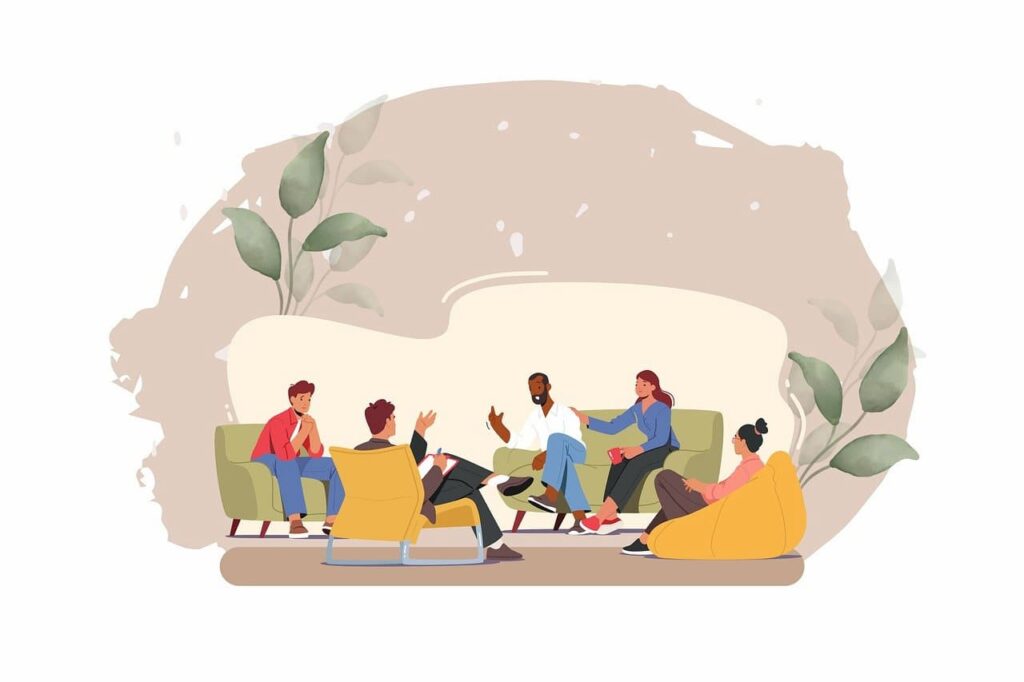
Social support plays a significant role in boosting memory confidence. Sharing memory-related experiences, learning from others, and engaging in memory-based activities within a community can help normalize challenges, reduce anxiety, and offer practical strategies for improvement. By connecting with others who face similar memory concerns or who have developed successful techniques, individuals gain both emotional support and useful guidance, which fosters confidence in their ability to strengthen memory skills. Below are three ways social support can be leveraged to build memory confidence: discussing memory with others, learning from peers, and participating in memory competitions or groups.
Discuss Memory with Others
Normalizing Memory Challenges through Discussion: One of the most effective ways to reduce anxiety about memory and build confidence is to talk openly about memory-related concerns with friends, family, or colleagues. Many people struggle with memory lapses or are unsure how to improve their recall abilities, but these challenges are often experienced privately, leading to a sense of isolation or self-doubt. By discussing memory issues, individuals can normalize these experiences, realize they’re not alone, and gain practical tips or reassurance from others.
- Sharing Experiences Reduces Pressure: Talking about memory lapses with trusted individuals can help reduce the internal pressure to have a “perfect” memory. When people realize that forgetfulness is a common, shared experience, they become less critical of themselves. Friends or family members might even share their own memory struggles, offering solidarity and emotional support.
- Gaining Insight into Solutions: Open discussions about memory challenges also provide opportunities to exchange solutions. Family members might suggest tools like using shared calendars, while colleagues might recommend memory strategies, they’ve found helpful in a professional setting. This exchange of ideas provides new approaches for building memory confidence.
How It Builds Confidence: Discussing memory openly helps destigmatize forgetfulness and reduces the shame or anxiety that often accompanies memory lapses. By sharing experiences and learning that others face similar challenges, individuals feel less isolated and more confident in their ability to address memory issues with the support of their social network.
Example: A working professional who struggles to remember names during networking events might discuss this challenge with a colleague. The colleague might share their own strategy of repeating names aloud during conversations, which has helped them improve recall. This exchange normalizes the issue and provides a useful technique that boosts confidence.
Learning from Peers
Gaining Practical Advice from Others: Learning memory improvement techniques from peers or mentors can be a valuable way to build memory confidence. By observing others who have successfully enhanced their memory skills, individuals can find both inspiration and practical advice. Whether in personal or professional settings, seeing how others tackle memory-related challenges can demystify the process and offer new methods for improvement.
- Mentorship and Guidance: In a professional environment, mentors or colleagues with strong memory skills can offer guidance on how they organize information, memorize key data, or handle multiple tasks. Learning these techniques firsthand provides practical, real-world applications that individuals can incorporate into their daily routine.
- Peer Support Groups: In academic settings or study groups, students can share memory strategies like mind mapping, flashcards, or mnemonic devices. Seeing these techniques in action and hearing about their effectiveness encourages others to try them, reinforcing the idea that memory improvement is achievable with the right strategies.
How It Builds Confidence: Learning from others who have successfully improved their memory skills helps remove the mystery or doubt surrounding memory improvement. By seeing real-life examples of how memory can be strengthened, individuals feel empowered to try new techniques themselves, knowing that others have succeeded. This provides both practical tools and the motivational support needed to improve memory.
Example: A student struggling with retaining vocabulary for a foreign language might talk to a classmate who excels in this area. The classmate could introduce them to spaced repetition software, which has helped them remember new words over time. Seeing the positive results in a peer reinforces the student’s belief that they, too, can improve their memory with the right approach.
Participating in Memory Competitions or Groups
Building Confidence Through Practice and Feedback: For those particularly interested in memory improvement, participating in memory competitions or joining memory improvement groups can provide structured practice and valuable feedback, which significantly boosts memory confidence. These groups offer a social environment where individuals can challenge themselves, track progress, and receive encouragement from others working toward similar goals. Memory competitions, while more competitive, provide an exciting way to test and improve memory skills in a supportive atmosphere.
- Memory Competitions: In memory competitions, participants are tasked with memorizing sequences of numbers, faces, names, or other types of information within a set time frame. These competitions encourage individuals to push the limits of their memory while receiving feedback on areas of improvement. Whether winning or simply improving personal bests, participants often leave with a stronger belief in their memory abilities.
- Memory Improvement Groups: Memory groups, whether online or in person, offer a collaborative space where members can practice memory techniques together, share challenges, and celebrate successes. These groups provide both accountability and social support, making the process of memory improvement more enjoyable and less isolating.
How It Builds Confidence: Participating in memory competitions or improvement groups gives individuals a structured, supportive environment to test and refine their memory skills. The regular practice and positive reinforcement from group members build confidence by showing consistent improvement. Additionally, the social element of these groups provides a sense of belonging, motivation, and encouragement, which further boosts memory confidence.
Example: A memory enthusiast might join an online memory competition where they practice memorizing numbers and faces. After improving their personal scores and receiving positive feedback from other participants, they gain confidence in their ability to remember larger amounts of information. This progress motivates them to apply similar techniques in daily life, such as remembering names or important facts at work.
Social support is a powerful tool for building memory confidence. By discussing memory-related concerns with friends, family, or colleagues, individuals can normalize memory challenges and exchange helpful strategies, reducing anxiety. Learning from peers or mentors provides practical techniques and inspiration, while participating in memory competitions or improvement groups offers structured practice and feedback in a supportive environment. These social interactions foster a sense of community, provide motivation, and reinforce the idea that memory improvement is achievable, helping individuals build confidence in their memory abilities over time.
12. Role of Lifestyle Factors in Memory Confidence

Lifestyle factors play a significant role in influencing memory performance and, in turn, memory confidence. The way we take care of our bodies and brains through sleep, exercise, diet, and hydration affects our cognitive function and ability to recall information. When these lifestyle factors are optimized, individuals experience improved memory, sharper mental focus, and greater confidence in their recall abilities. Conversely, neglecting these areas can impair memory function and lead to self-doubt about memory capacity. Here’s how sleep, exercise, diet, and hydration contribute to memory confidence.
Sleep and Memory
Importance of Sufficient Sleep for Memory Consolidation: Sleep plays a critical role in memory consolidation, which is the process by which short-term memories are transformed into long-term ones. During sleep, the brain organizes and stores information learned throughout the day, strengthening neural connections that are crucial for memory retention. Without adequate sleep, this process is disrupted, leading to poor memory performance and reduced confidence in recall abilities.
- Memory Consolidation During Sleep: During deep sleep (particularly during slow-wave sleep), the brain replays and consolidates the day’s experiences, reinforcing important memories while discarding irrelevant ones. REM sleep, which occurs later in the night, also plays a key role in emotional memory and problem-solving. Both of these sleep stages are necessary for optimal memory function.
- Impact of Sleep Deprivation: Lack of sleep impairs attention, concentration, and the ability to encode new memories. Sleep-deprived individuals often struggle with memory recall and experience cognitive fog, which reduces confidence in their memory skills. Chronic sleep deprivation can lead to long-term memory deficits, further exacerbating self-doubt and anxiety regarding memory performance.
How It Builds Confidence: Getting sufficient, high-quality sleep allows individuals to retain and retrieve information more effectively, boosting confidence in their memory abilities. When people wake up well-rested and mentally sharp, they feel more capable of recalling important details, whether in exams, meetings, or social interactions.
Example: A student preparing for an important exam might prioritize 7–9 hours of sleep during the study period. By doing so, they strengthen their ability to retain key facts and concepts, helping them feel more confident about recalling the information during the test.
Exercise and Brain Health
How Physical Activity Boosts Cognitive Function: Regular physical activity is not only beneficial for physical health but also plays a vital role in boosting cognitive function and improving memory. Exercise increases blood flow to the brain, promotes the growth of new neurons, and enhances brain plasticity—all of which contribute to better memory performance and overall mental clarity.
- Increased Blood Flow to the Brain: Exercise improves cardiovascular health, which in turn increases blood flow and oxygen delivery to the brain. This enhanced circulation supports cognitive functions, including memory and concentration.
- Promotion of Neurogenesis: Physical activity stimulates the production of brain-derived neurotrophic factor (BDNF), a protein that supports the growth of new neurons and strengthens connections between brain cells. BDNF is particularly important for memory formation and retention.
- Stress Reduction and Mental Clarity: Exercise also reduces stress and anxiety by releasing endorphins and lowering cortisol levels. Reduced stress leads to clearer thinking and better focus, which makes it easier to recall information, further boosting memory confidence.
How It Builds Confidence: When individuals engage in regular physical activity, they often experience sharper cognitive function, including improved memory recall. This mental sharpness leads to greater confidence in memory performance, especially in high-pressure situations where focus and recall are essential.
Example: A professional preparing for an important presentation might incorporate regular aerobic exercise into their routine. As a result, they experience enhanced focus and memory recall, helping them deliver their presentation with more confidence and fewer memory lapses.
Healthy Diet for Memory
Brain-Boosting Diet for Cognitive Health: What we eat directly affects brain function, and a diet rich in brain-boosting nutrients can enhance memory and cognitive performance. Certain foods, particularly those high in omega-3 fatty acids, antioxidants, and essential vitamins, support cognitive health by reducing inflammation, protecting brain cells, and promoting overall brain function. A healthy diet contributes to sharper memory and better recall, fostering confidence in one’s memory abilities.
- Omega-3 Fatty Acids: Found in fish like salmon, mackerel, and sardines, omega-3s are critical for maintaining the health of brain cells and supporting communication between neurons. They are linked to improved memory and learning, as well as protection against age-related cognitive decline.
- Antioxidants: Foods rich in antioxidants, such as berries (blueberries, strawberries), dark leafy greens (spinach, kale), and nuts, help reduce oxidative stress and inflammation in the brain. This protection enhances cognitive function and memory retention.
- Vitamins and Minerals: Vitamins like B6, B12, and folic acid, along with minerals like magnesium, support brain health by promoting energy production in brain cells and maintaining healthy blood flow. These nutrients are vital for cognitive sharpness and memory retention.
How It Builds Confidence: By adopting a brain-boosting diet, individuals notice improved cognitive function and memory performance over time. Feeling mentally sharper and more focused naturally builds confidence in one’s ability to remember important information, whether in academic, professional, or social contexts.
Example: An individual looking to improve their memory might incorporate more omega-3-rich foods like salmon and walnuts into their diet, along with antioxidant-rich fruits like blueberries. Over time, they experience enhanced cognitive clarity and better recall, boosting their confidence during important tasks such as presentations or exams.
Hydration and Focus
The Role of Hydration in Memory and Focus: Proper hydration is essential for maintaining cognitive function, including memory. The brain is made up of nearly 75% water, and even mild dehydration can impair focus, reduce attention span, and hinder memory recall. Ensuring that you stay hydrated throughout the day supports brain health and enhances memory, leading to greater confidence in recall abilities.
- Dehydration’s Impact on Memory: When the body is dehydrated, brain cells struggle to function optimally, leading to symptoms such as cognitive fog, forgetfulness, and difficulty concentrating. These symptoms can create self-doubt about one’s memory abilities, especially in high-pressure situations.
- Enhancing Mental Clarity: Staying hydrated helps maintain optimal brain function, which includes sharper focus, quicker information processing, and improved memory recall. Drinking water regularly throughout the day keeps the brain well-nourished and able to handle memory-related tasks with greater efficiency.
How It Builds Confidence: By staying hydrated, individuals maintain their mental clarity and ability to focus, which leads to better memory performance. With fewer instances of forgetfulness or mental fog, they feel more confident in their memory skills and less anxious about recalling important information.
Example: A student who struggles with focus during long study sessions might make a habit of drinking water regularly throughout the day. By staying hydrated, they improve their ability to concentrate and recall information, leading to increased confidence during exam preparation.
Lifestyle factors such as sleep, exercise, diet, and hydration have a profound impact on both memory function and memory confidence. Sufficient sleep is crucial for memory consolidation, ensuring that new information is retained and recall is sharp. Exercise boosts brain health by improving blood flow and promoting neurogenesis, leading to better cognitive function and enhanced memory. A healthy diet rich in omega-3s, antioxidants, and vitamins supports brain function, while proper hydration helps maintain mental clarity and focus. When these lifestyle factors are optimized, individuals experience sharper memory and improved recall, which significantly boosts confidence in their memory abilities across all areas of life.
13. Reinforcing Long-Term Memory Confidence
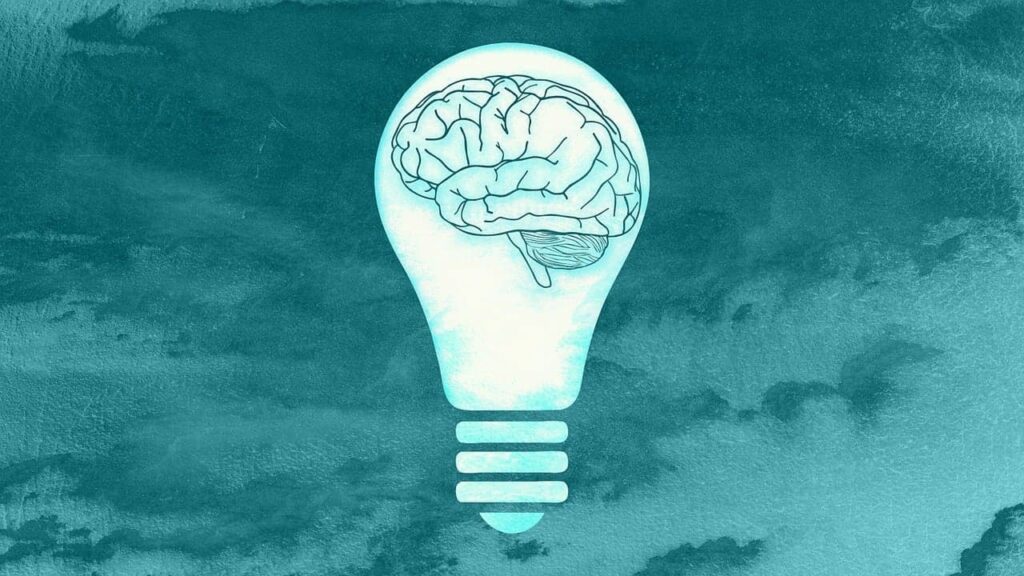
Reinforcing long-term memory confidence is an ongoing process that involves regular practice, adaptability, and engaging in mentally stimulating activities. Memory, like any skill, can improve with consistent effort, and maintaining confidence in one’s memory abilities requires a proactive approach. Once initial improvements are made, individuals need to continue practicing, refine their memory strategies, and challenge their brains through lifelong learning. By doing so, they not only sustain their memory skills but also continue building confidence in their ability to recall information over the long term.
Ongoing Practice and Maintenance
The Need for Consistent Memory Practice: After achieving initial improvements in memory, it’s crucial to engage in ongoing practice to maintain and reinforce both memory skills and long-term confidence in recall. Memory is a use-it-or-lose-it cognitive function; without regular practice, the neural pathways that support memory retrieval weaken over time, leading to reduced performance and confidence. By keeping the brain active through consistent recall and practice, individuals strengthen these connections and ensure long-term memory reliability.
- Maintaining Neural Pathways: Regularly practicing memory tasks keeps the brain’s neural pathways strong, allowing information to be stored and retrieved more efficiently. Memory practice can include activities such as recalling facts, solving puzzles, or reviewing information at spaced intervals.
- Preventing Memory Decline: Without ongoing practice, memory can become less reliable, particularly as we age. Continuous reinforcement of memory skills helps prevent natural declines and keeps the brain sharp, which reinforces confidence.
- Building Long-Term Retention: The more often individuals practice recalling specific information, the more likely that information will move from short-term to long-term memory. Over time, this builds a foundation of reliable long-term recall, reducing the need to constantly review or refresh knowledge.
How It Builds Confidence: By maintaining regular memory practice, individuals consistently see positive results, which helps reinforce their confidence. Whether it’s recalling names, dates, or facts, the ability to retain information over the long term, boosts confidence in handling memory tasks, both simple and complex.
Example: A person who has improved their memory for professional tasks, such as recalling meeting details or client preferences, might continue practicing these skills by reviewing their notes regularly or challenging themselves to recall facts without referring to documents. This ongoing practice ensures that their memory remains sharp and that they maintain confidence in their ability to perform well at work.
Adapting Strategies as Needed
Experimenting with and Adapting Memory Techniques: As memory confidence grows, it’s important to continually adapt and experiment with new memory strategies. What works well for simpler tasks might not be as effective for more complex challenges, and as the brain evolves, different techniques might be needed to keep it engaged and improving. This adaptability ensures that memory development continues over time, preventing stagnation and building long-term confidence.
- Tailoring Techniques to New Challenges: As memory tasks become more complex (e.g., learning technical information, managing larger data sets), individuals may need to adjust their techniques. For example, they might move from simple mnemonic devices to more advanced visualization or chunking methods to handle greater quantities of information.
- Evaluating Effectiveness: It’s important to regularly assess the effectiveness of memory techniques. Some strategies may become less useful as new demands arise, so experimenting with different approaches helps individuals discover what works best for them in various contexts.
- Staying Engaged: Adaptation also helps prevent boredom or complacency. Trying out new strategies, such as mind mapping, storytelling, or memory palaces, keeps the brain actively engaged and ensures that memory practice remains dynamic and stimulating.
How It Builds Confidence: By regularly adapting memory strategies, individuals develop the flexibility to tackle a wide range of memory challenges with confidence. They become more skilled at tailoring their approach to specific tasks, which reduces anxiety and enhances their belief in their memory abilities.
Example: A student who initially used flashcards to memorize facts might transition to spaced repetition software as the volume of material increases. By adapting their strategy to the growing demands of their studies, they build confidence in handling more complex memory tasks.
Continuing Education and Brain Challenges
Engaging in Lifelong Learning Activities to Build Confidence: Lifelong learning and continuous mental challenges are essential for keeping the brain active and enhancing long-term memory confidence. Just like physical exercise strengthens the body, mental challenges keep the brain sharp, preventing cognitive decline and reinforcing memory skills. Engaging in new learning opportunities and activities that require memory use stimulates cognitive function and helps maintain high levels of memory performance.
- New Hobbies and Skills: Taking up new hobbies, such as playing an instrument, learning a new language, or practicing a new sport, provides mental stimulation that keeps the brain engaged. These activities often involve memorizing new patterns, rules, or information, which challenges the brain and improves memory.
- Learning New Languages: Learning a new language is particularly beneficial for memory because it requires the brain to remember vocabulary, grammar structures, and pronunciation rules. This continuous mental effort strengthens neural pathways and enhances both short-term and long-term recall abilities.
- Reading and Mental Stimulation: Reading extensively, whether fiction or nonfiction, is another way to engage the brain and challenge memory. Readers often remember plotlines, character details, and important concepts, all of which require mental effort. Reading keeps the mind engaged and sharp, promoting memory retention and cognitive health.
How It Builds Confidence: Engaging in continuous learning activities helps individuals maintain a high level of cognitive function and memory performance, which in turn boosts their confidence in their memory abilities. When people successfully learn new skills or retain information from new experiences, they reinforce the idea that their memory remains reliable and capable of handling challenges.
Example: An adult learner might decide to take up a new hobby such as learning the guitar. As they memorize chord progressions and practice daily, they not only improve their guitar skills but also strengthen their memory. Over time, their growing ability to recall complex chord structures boosts their confidence in their overall memory abilities, which translates into other areas of life.
Reinforcing long-term memory confidence requires a commitment to ongoing practice, adapting strategies as needed, and engaging in lifelong learning activities. Ongoing practice keeps neural pathways strong and ensures that memory skills remain sharp, while adapting memory strategies allows individuals to tackle increasingly complex tasks with confidence. Continuing education and brain challenges such as learning new hobbies or reading extensively provide the mental stimulation needed to maintain and further develop memory skills. By maintaining these lifestyle habits, individuals can sustain and even enhance their memory abilities over time, leading to long-lasting confidence in their ability to recall and use information effectively.
14. Conclusion
Building memory confidence takes time, patience, and consistent practice. Just like any other skill, memory improves when we actively work on it. By using helpful strategies like breaking tasks into smaller steps, practicing recall regularly, and using memory aids when needed, we can strengthen our memory skills and feel more confident in our ability to remember important information.
It’s also important to remember that everyone experiences memory lapses from time to time. Rather than feeling discouraged, we should view these moments as opportunities to learn and grow. With the right mindset and a willingness to adapt, memory confidence can steadily improve.
Lastly, challenging our brains with new learning experiences whether it’s picking up a new hobby, reading, or solving puzzles-keeps our minds sharp and boosts our memory confidence even more. By making memory practice a regular part of our lives, we can trust our ability to remember what matters and enjoy the benefits of a strong and confident mind. May you find joy in strengthening your memory, grow more confident in your abilities each day, and discover the power of a focused and reliable mind!
Share This Article
Subscribe to Get Latest Updates!

Wisdom Database

At Wisdom Database, we believe that learning can be an exciting adventure. Explore our blog articles, test your knowledge with our quizzes, and join us on a learning journey that’s both enriching and entertaining. Get ready to unlock a world of knowledge in a fun and interactive way!
Follow us on social media
Featured Quizzes
- All Posts
- Critical Thinking
- Memorization
- Reading








